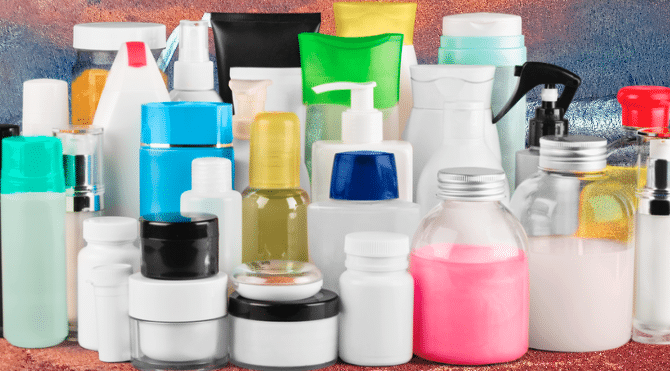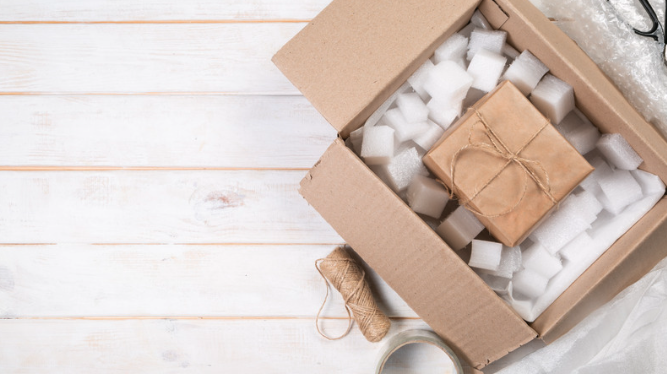Launching your own brand on Amazon could be your ticket to e-commerce success, but only if you navigate the platform’s stringent requirements with precision. This essential checklist for Amazon private label requirements is strict but vital, forming the foundation for your brand’s credibility and earning the trust and confidence of your customers.
This blog will provide you with a clear, step-by-step rundown of the Amazon private label requirements that every seller must adhere to before hitting the marketplace. We strip away the guesswork so that you can focus on building a brand that not only complies with Amazon’s standards but also stands out in a crowded market.
Dive in to ensure your private label journey on Amazon begins on the right foot.
What is Amazon Private Label?

Amazon Private Label allows sellers to market products under their own brand on Amazon’s marketplace. Sellers typically source generic items from manufacturers and then brand those products as their own. This approach not only enables sellers to stand out in a crowded marketplace but also provides the freedom to set their prices and control quality.
However, with the privilege of branding comes the responsibility of meeting Amazon’s private label requirements. These guidelines ensure that products provided under private labels meet Amazon’s standards for safety, quality, and customer satisfaction. Adhering to these requirements is crucial, as it directly impacts the credibility of your brand and the trust of Amazon’s customer base.
Eligibility Criteria for Sellers
To become a private label seller on Amazon, you need to meet certain eligibility criteria. These criteria are designed to ensure that only reputable sellers with a proven track record are allowed to sell on the platform. Here are the two main eligibility criteria that you need to meet:
Business Verification
Amazon requires that all private label sellers have a registered business entity in the country where they are selling. This means that you need to have a legal business entity, such as a sole proprietorship, partnership, or corporation. You will need to provide Amazon with your business registration documents, such as your business license and tax ID number, to verify your business.
Tax Information
Amazon requires all private label sellers to provide tax information to ensure that they are compliant with local tax laws. You will need to provide Amazon with your tax identification number, such as your Social Security Number (SSN) or Employer Identification Number (EIN). You will also need to provide information about your tax status, such as whether you are a sole proprietor or a corporation.
Product Compliance

When selling private label products on Amazon, it’s important to ensure that your products meet the platform’s strict product compliance requirements. This includes adhering to safety standards, labeling requirements, and intellectual property rights.
Safety Standards
Amazon requires that all products sold on their platform meet certain safety standards to protect consumers from harm. This means that your products must be designed and manufactured in a way that ensures they are safe to use and free from any hazardous materials.
To ensure compliance, it’s important to research and understand the safety standards and regulations that apply to your product category. You may need to obtain certifications or conduct testing to demonstrate that your products meet these standards.
Labeling Requirements
Amazon also has strict labeling requirements for private label products. Your products must be labeled accurately and clearly, with all necessary information provided to the consumer.
This includes labeling for product name, description, ingredients, warnings, and any other relevant information. You may also need to include barcodes or other tracking information to help with inventory management.
Intellectual Property Rights
Finally, it’s essential to ensure that your private label products do not infringe on any intellectual property rights. This includes trademarks, copyrights, and patents.
Before listing your products on Amazon, make sure to conduct a thorough search to ensure that your branding, packaging, and product design do not infringe on any existing intellectual property rights. This can help protect you from legal action and ensure that your products are not removed from the platform.
Listing and Packaging

When selling your private label products on Amazon, listing and packaging are two crucial aspects that you need to pay attention to. Here are some requirements and guidelines that you should keep in mind:
Product Listing Optimization
To ensure that your products are easily discoverable and appealing to potential customers, you need to optimize your product listings. This involves using relevant keywords in your title, bullet points, and product description, as well as providing high-quality images and detailed product information.
Amazon also has specific guidelines for product listings, such as avoiding prohibited content, accurately describing your product, and providing correct information about pricing and shipping.
Packaging Guidelines
Amazon has strict packaging guidelines to ensure that products are delivered to customers safely and in good condition. These guidelines include using sturdy and secure packaging materials, avoiding excessive packaging, and providing clear labeling and product information.
In addition, Amazon requires that all private label products have a unique identifier, such as a barcode or ASIN, to help with inventory management and tracking.
Shipping and Fulfillment

Fulfillment by Amazon (FBA) Requirements
When it comes to shipping and fulfillment for your Amazon private label products, Fulfillment by Amazon (FBA) is a popular option. With FBA, Amazon takes care of storing your products, picking and packing them, and shipping them to customers. This can save you time and hassle, but it’s important to meet Amazon’s requirements to use FBA.
First, your products must be eligible for FBA. This means they must meet certain size and weight requirements, and they must be allowed for sale on Amazon. You’ll also need to create a shipping plan and label your products correctly.
In addition, you’ll need to meet Amazon’s packaging and prep requirements. This includes using appropriate packaging materials, labeling your products correctly, and ensuring they are ready for shipment.
Shipping Logistics
If you choose not to use FBA, you’ll need to handle shipping and fulfillment yourself. This means you’ll need to have a plan in place for storing your products, picking and packing them, and shipping them to customers.
When handling shipping logistics, make sure to choose a carrier and shipping method, and calculate shipping costs and delivery times. You should also have a system in place for tracking shipments and handling returns.
Customer Service and Returns

Customer Support Standards
As an Amazon private label seller, providing excellent customer service is crucial to maintaining a positive reputation and increasing sales. Amazon requires all private label sellers to meet certain customer support standards to ensure that customers have a positive shopping experience.
To meet these standards, you must respond to customer inquiries within 24 hours, maintain accurate product information, and handle any customer complaints or issues in a timely and professional manner. It is also important to provide clear and concise information about your products, including product descriptions, images, and specifications.
Return Policy Compliance
Amazon private label sellers must also comply with Amazon’s return policy. This policy allows customers to return products within 30 days of receipt for a full refund, as long as the product is in its original condition. As a seller, it is your responsibility to process returns quickly and efficiently to ensure customer satisfaction.
To comply with Amazon’s return policy, make sure to clearly state your return policy on your product detail page. This includes information about the return process, such as how to initiate a return and how long it will take to receive a refund. You should also provide accurate information about the condition of your products to avoid any disputes or issues with returns.
Conclusion
It should be clear to you by now that our Amazon private label checklist isn’t just about compliance—it’s a strategic move to fortify your brand’s position within Amazon’s ecosystem. Each requirement ticked off the list is a step toward ensuring that your private label stands on solid ground, ready to compete in a marketplace teeming with opportunity. Adherence to these guidelines signals to customers the professionalism of your brand, which can translate to increased trust and, ultimately, sales.
With every detail—from product safety and compliance to superior customer service metrics—meticulously addressed, your brand doesn’t just exist on Amazon; it excels. A profound understanding of these requirements paves the way for smoother operations and scalability. After all, in the world of Amazon private labeling, success is often a result of perspicacity and preparation, not just chance.
While you’re here, we invite you to enhance your strategy further by exploring the top selling items on Amazon, which can guide you in making informed decisions about product selection and market trends. With this knowledge, you can align your business goals with consumer demand, ensuring a commanding Amazon presence. Onwards to the next step!
Frequently Asked Questions
How much money do you need to start private label on Amazon?
The amount of money required to start private label on Amazon can vary depending on the product you choose and the quantity you plan to order. Generally, you should expect to invest a few thousand dollars to get started. Keep in mind that you will need to cover the cost of product development, manufacturing, shipping, and marketing.
Do I need an LLC to sell private label on Amazon?
It is not required to have an LLC to sell private label on Amazon, but it is highly recommended. Having an LLC can offer you legal protection and can make it easier to open a business bank account and manage your finances.
What does private label mean on Amazon?
Private label on Amazon refers to the practice of selling products under your own brand name. This means that you work with a manufacturer to create a product that is unique to your brand and sell it exclusively on Amazon.
Is Amazon FBA private label still worth it?
Yes, Amazon FBA private label can still be a profitable business model. However, it is important to do your research and choose a product with high demand and low competition to increase your chances of success.
Can I buy a product and sell it under my own brand?
Yes, you can buy a product and sell it under your own brand. This is known as white labeling. However, make sure to check that the product meets Amazon’s private label requirements and that you have the legal right to sell the product under your brand name.
What is the difference between Amazon private label and dropshipping?
The main difference between Amazon private label and dropshipping is that with private label, you work with a manufacturer to create a product that is unique to your brand and sell it exclusively on Amazon. With dropshipping, you sell products that are already being sold by other retailers and have them shipped directly to the customer from the supplier.
